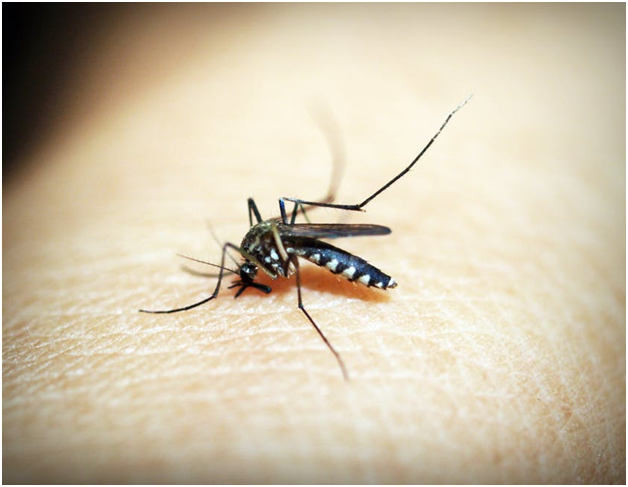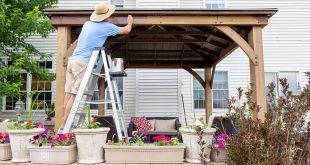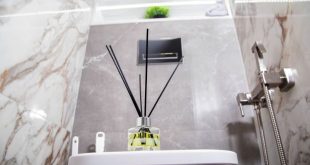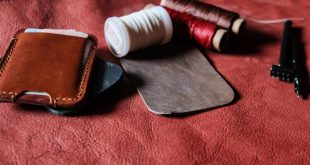The household pests or the things that go squeak or bump in the middle of the night can be a nightmare to any homeowner. Insects provide numerous benefits to the environment in so many ways. However, they must be outside in their natural habitats where they belong if the benefits are to be realized. Moths, flies, ants, mosquitoes, spiders, cockroaches and other creepy crawlies are not so welcome in the home. As a homeowner, your first instinct would be to dash and get a can bug spray to eliminate the annoying creatures.

But most of the store-bought insect eradicators are formulated using harmful ingredients. Fortunately, there are more natural ways that have proven to successfully discourage, prevent, and treat all kinds of home infestations and the beauty of it all is that the natural methods involve no spraying with toxic chemicals.
While the artificial pest repellants, sprays, poisons, and baits are highly effective for waging a war on these home invaders, poisons are dangerous and lethal when accidentally touched or ingested. Note that exposure to most pesticides may cause irritation to the respiratory system, eyes, and skin. The pesticides additionally disrupt hormones and potentially cause cancer in the long run. Even the relatively benign pesticides are dangerous if operated or handled improperly.
Household chemicals produce damaging side effects to the environment as well. It is worth noting that pesticides often end up in groundwater, lakes, rivers, and the ocean. As a result, these water sources remain contaminated for people and animals. The good thing is that there are safer alternative ways that you can implement if you wish to de-bug your home. The natural remedies range from non-toxic home cleaning products to essential oils.
Here are important tips to help you keep your home free from pests in a safe, healthy, environmentally friendly and more humane way.
Keep Them Out By Cleaning Up
A good snack will keep household pests flocking your home; so keep all food types under wraps to keep away the annoying creatures.
- Store sugar, flour, and other forms of dry ingredients inside sealed bags, plastic containers or glass.
- Take out trash as often as you can and place outdoor garbage cans far from your main door.
- Remove crumbs and clean up spills immediately.
- Wash dishes immediately after taking your meals and don’t leave food-encrusted plates or bowls hanging out unattended.
- Regularly recycle cardboard, boxes, and old newspapers. Rodents and bugs love to cozy up in these materials.
Keep Your Home Environment Dry
Cockroaches and mosquitoes are attracted to water; so make sure your home environment is dry at all times.
- Leaving sinks filled with water is perfect for cockroaches. So, drain the water the moment you’re done doing the dishes.
- Wipe spills and puddles that form water pools in your home.
- Fix leaky appliances, sinks, bathroom fixtures, and pipes to prevent water from dripping on the floor.
Be A Handyman
You probably promised yourself to fix the hole in your door or wall. Well, now it’s time to get down and dirty and fix that small problem. A rip or a tiny hole is an invitation for pest infestation and the annoying creatures come in all shapes and sizes.
- Replace or patch up holes in walls and screens, especially around the doors and windows.
- Store mulch piles and firewood away from the foundation of your home.
- Use a caulking gun to seal openings and cracks around windows, pipes, and baseboards.
Identify the Type of Infestation and The Most Effective Natural Remedy
Every geographical location has a unique set of pesky pests. Below we shall find out how you can effectively get rid of common home invaders in the most natural ways.
1. Ants
Begin by finding the entry points used by the ants and seal them using petroleum jelly or caulk. Pure cinnamon, cream of tartar, garlic, coffee grinds, paprika, chili pepper, dried peppermint, and cloves are superb ant repellents. Sprinkle a combination of these spices at the entry points to deter them from accessing your home. Lemon juice or lemon peels also come in handy when you need to get rid of the critters.
2. Bees & Wasps
Wasps, yellow jackets, and bees are important as they help to keep the ecosystem thriving (pollinate crops and plants and carry out pest control by turning them into prey). Therefore, you should only remove them when you feel it’s really necessary to do so. Only remove bees and wasps when they pose a direct threat to a family member with an allergy or they’ve infested your home. To successfully remove a nest from your home, wait until the queen leaves after which you can fill up the nest using to discourage the queen from making a re-entry. You may also use containment traps (with baits) and non-toxic essential oils to discourage all pests, including the flying and stinging creatures.

Fun Fact: Wasps are territorial insects. Therefore, if you want to prevent real wasps from the confines of your home, set up a fake nest in your home. This will prevent wasps from moving nearby. Simply remove a nest or drown the nest in soapy water. While this is a highly effective strategy, it can prove dangerous.
3. Bed Bugs
Unfortunately, eliminating bed bugs is not so easy. To begin the process, you first need to wash all surfaces (pillows, sheets, clothing, towels, and curtains) that might harbor the little critters in hot water and then dry them at the highest heat setting for a period of 30 minutes. The next process involves scrubbing all mattresses using a brush and then vacuuming them, including the surrounding rooms thoroughly. Remember to dispose of all bugs from the vacuum cleaner immediately.
If the level of infestation is too bad, toss the mattress. Proceed to seal up cracks in the floorboards and peeling wallpaper. This helps to clear up potential hiding spots. Also, remember to remove clutter in your bedroom. Cinnamon, clove, lavender, lemongrass, tea tree, thyme, eucalyptus, and peppermint are good examples of the pure essential oils that you can use effectively to repel all bed bugs. Therefore, spray these in suitcases prior to embarking on a trip and remember to do the same before you travel back home.
4. Spiders
Most spider species are generally harmless to humans, but if you’d rather not share your home with these eight-legged creatures, then you should find them and get rid of them in a safe, natural way. Since spiders usually keep to themselves in dark spaces, Kyle Ricks from www.naturapestcontrol.com says that one way to tell if you have a spider infestation is if you see them wandering around your home. You can get rid of spiders safely by clearing away any form of clutter in your home, clean and vacuum storage areas on a regular basis, and trim long grass and vegetation outside. Discourage spider populations by spraying their nests with a saline solution. Essential oils and chestnuts are also effective, as they help to get rid of the arachnid infestation fast.
5. Fleas
Use special preventative medications that essentially prevent fleas from clinging on. Once they find their way into your home, removing them can prove difficult. Vacuum frequently and focus on the areas where your pets hang out. Remember to discard vacuum cleaning bags immediately. In addition, wash your pets frequently and use bug traps that emit heat and light. Aromatics and natural herbs such as citronella, lemon, rosemary, and wormwood are also useful for deterring fleas from becoming guests in your home.
6. Flies
Clean up regularly, mop up any spills immediately, and take out the trash. Install screens on sliding doors and windows to keep flies and other bugs outside. Construct some DIY traps using safe chemicals to control the infestation of flies in your home.
7. Rats And Mice
The most effective way of eliminating rodents involves controlling the environment. Therefore, you may begin by sealing up all entry holes (do not forget the window screens because rodents are good climbers) that may lead the pesky rodents into your home. Make sure you store all food items and debris in sealed containers. Get rid of wood piles and other debris (indoor clutter and boxes) that could provide housing for the pests. If you notice that rodents are attracted to specific areas, spray these areas with a solution containing garlic, cayenne pepper, and horseradish to ward off rats and mice. Other non-chemical solutions that come include having a pet such as a cat or rat terriers in your home as these are natural rodent predators. Additionally, you can set up traps in strategic places in your home.
8. Fruit Flies
If fruit flies have invaded your kitchen, then you might want to try out this effective trick to eliminate the bugs. Mix a little soap with vinegar (for the best results, use apple cider vinegar) or some wine to eliminate the annoying flat black bugs. Place the mixture in a small cup and cover it up with plastic wrap, then poke holes in the wrap. The pesky creatures will get inside and get trapped.
9. Millipedes
While millipedes are generally friendly, unlike centipedes – the more docile relatives. Even though they seem friendly, they can actually harm humans whey they feel threatened. The yellow-spotted millipede, for instance, will curl when threatened and secrete hydrogen cyanide (a strong poison) onto anyone holding it. While the amount of hydrogen cyanide they produce isn’t sufficient to kill, it is advisable that you wash your hands and desist from touching your face. Get rid of millipedes by removing clutter from your home.
10. Termites
You can actually prevent termite infestation by keeping woodpiles and mulch piles far away from the foundation of your house. Do not build wood structures closer to or against the foundation and keep plant material minimal. Orange oil, neem tree oil, and borax chemical treatments are highly effective and non-toxic to humans.
11. Meal Moths
Luckily, meal moths are easy to eliminate. Once you detect the infestation, you can start cleaning. However, do not forget to put on your rubber gloves. Toss any containers or packages with the meal bugs and carefully examine the unopened packages just to make sure there are no adult bugs or larvae in them. Note that meal bugs are capable and willing to chew their way through aluminum foil and cardboard to reach the goodies.
Next, vacuum the cabinet crevices and wash them using soapy water. To effectively deal with the issue of recurring bugs in your kitchen, store non-perishables in your refrigerator. You may also store them in plastic canisters, metal, or glass. Make sure you clean your kitchen space on a regular basis to prevent infestations in the future.
12. Ticks
Ticks cannot get into the confines of your home unless they jump onto a host. So, the most ideal way of getting rid of these pests is to prevent their entry into your home. When strolling in areas with ticks such as fields or forests, wear long pants and make sure they are tucked in light-colored socks. Yard ticks, on the other hand, can be warded off by keeping shrubs and grass trimmed properly. After engaging in outdoor activities, examine your clothes and remove any of the little suckers you find.
Use the Bug Repellants Correctly
Of course, the essential oils aforementioned have been extensively studied and there is sufficient evidence to prove that the possible side effects they produce are actually minimal. However, if you have children, make sure the bug repellents are not left carelessly lying around in the house. Ingestion of some of these substances can be harmful.
By opting for the environmentally-friendly solutions recommended to keep your home free of household pests of any kind, you help save your own immune system and the planet as well. Fortunately, you can easily find everything you need to formulate the mixtures and solutions in your kitchen cupboard or your local grocery store. The best bit about using these items is that you can use them for other things too; meaning nothing is ever wasted. So go ahead and try out and try out these safe, natural pest eradication methods to see how well they work for you while ensuring your home or apartment is free of pesky insects and other household pests.
 World inside pictures Collect and share the best ideas that make our life easier
World inside pictures Collect and share the best ideas that make our life easier








